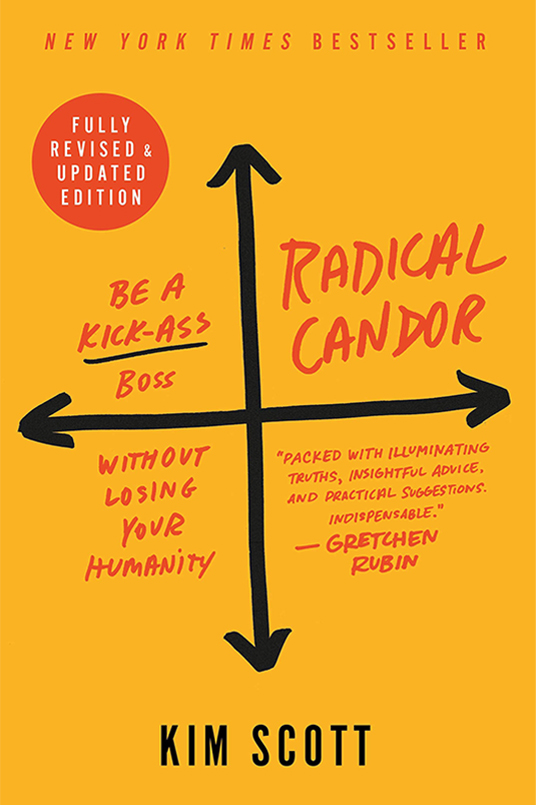This is the first book that I’ve started reading, decided to stop reading midway, and add it to my “stopped reading shelf”, and then started reading again.
This is proof that “just in time” knowledge will always be more valuable, and thus it will lead to motivated action than “just in case” knowledge.
The book is focused on how to be a kick-ass boss. When I first started reading, I was basically the boss of myself. Later on, the team at Latinpresarios started to grow which reminded me of the book and that is why I decided to continue reading it.
The book also dives deeply into details and execution which is why at times it may feel like a slow read. Although it doesn’t flow as great as others, the effort is valuable if you are in a position of leadership and responsible of managing others.
Flow: 3/5, the book can definitely feel like going thought mud at times because of how much detail is shared.
Actionability 5/5, on the flip side, these specifics will help you take action and easily understand exactly what to do to translate the knowledge into value.
Mindset: 4/5, the book shines a light on how to become a firm but caring leader.
Some Of My Highlights:
-
“Then a leader at Apple pointed out to me that all teams need stability as well as growth to function properly; nothing works well if everyone is gunning for the next promotion.”
-
“Apple made room for all different types of ambition, and that was part of how it got big while defying ‘the gravitational pull of organizational mediocrity’.”
-
“Gender, racial, and cultural differences do make having Radically Candid relationships harder. It’s scary to be Radically Candid with those who look like us. It’s scarier when people look different, speak a different language, or practice a different religion.”
-
“We undervalue the ’emotional labor’ of being the boss.”
-
“Your ability to build trusting, human connections with the people who report directly to you will determine the quality of everything that follows.”
-
“Being the boss can feel like a lonely one-way street at times – especially at first. That is OK. If you can absorb the blows, the members of your team are more likely to be good bosses to their employees, when they have them.”
-
“Former Secretary of State Colin Powell once remarked that being responsible sometimes means pissing people off… if nobody is ever mad at you, you probably aren’t challenging your team enough.”
-
“Both dimensions of Radical Candor are sensitive to context. They get measured at the listener’s ear, not at the speaker’s mouth.”
-
“This explains the advantages that the assholes seem to have in the world… Most people prefer the challenging ‘jerk’ to the boss whose ‘niceness’ gets in the way of candor… Fortunately, the ‘asshole or incompetent’ thing is a false dichotomy: you don’t have to choose between those two extremes.”
-
“Blaming people’s internal essence rather than their external behavior leaves no room for change.”
-
“Remember, Obnoxious Aggression is a behavior, not a personality trait. Nobody is a bona fire asshole all the time.”
-
“When you are overly worried about how people will perceive you, you’re less willing to say what needs to be said.”
-
“How long do you spend making sure you have all the facts right before you criticize somebody? How long do you spend making sure you have all the facts before you praise somebody?”
-
“It’s easier to say, ‘You’re sloppy’ than to say, ‘You’ve been working nights and weekends, and that is starting to take a toll on your ability to catch mistakes in your logic.’ But it’s also far less helpful.”
-
“In my experience, people who are more concerned with getting to the right answer that with being right make the best bosses.”
-
“Only about five percent of people have a real vocation in life, and they confuse the hell out of the rest of us.”
-
“In World War II, the U.S. Air Force took their very best pilots from the front lines and sent them home to train new pilots.”
